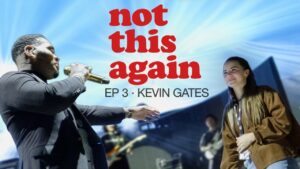The latest episode of Joe Budden TV sparked a wave of conversation after Stephen A. Smith publicly responded to criticism from former ESPN colleague Michelle Beadle, reigniting long-standing tension and drawing new voices into the debate. What began as Beadle’s commentary on her podcast escalated into a broader conversation about Smith’s influence, ESPN’s history, and the politics of sports media.
Beadle, who parted ways with ESPN years ago, used her platform to question Smith’s work ethic, his on-air approach, and the network’s decision to elevate him. Her comments suggested he was overpaid, overexposed, and uninterested in the subjects he covers, claims Smith chose not to ignore this time. He stated that Beadle has taken shots at him for more than a decade, insisting he never previously responded because he does not know her beyond surface-level workplace interactions.
The conversation deepened when Joe Budden’s crew broke down Beadle’s remarks, calling the tone “hate-filled” and questioning why she would wish for Smith’s downfall. They emphasized that Smith’s work ethic, whether self-motivated or network-driven, played a major role in building his value, reach, and cultural relevance across sports media. The hosts also challenged the idea of co-hosts or podcast partners inserting themselves into personal disputes, pointing to the involvement of Beadle’s colleague as unnecessary and performative.
Cari Champion’s reaction added another layer. A former co-host of First Take and longtime ESPN figure, Champion questioned whether Smith holds the same energy toward Beadle that he does toward Black women he has publicly disagreed with in the past. Her comments suggested unresolved issues behind the scenes and sparked discussion about consistency, accountability, and who receives Smith’s sharpest critiques. The Joe Budden TV panel acknowledged Cari Champion’s credibility but noted that much of the conflict appears rooted in unseen internal history.
Amid the accusations, speculation surfaced that Beadle’s renewed criticism may be connected to her former SiriusXM slot being replaced, ironically, by Stephen A. Smith’s new show. The timing raised questions about professional frustration and the role competitive tension may be playing in the discourse.
Across the episode, the hosts presented Smith as someone who has earned his position through relentless work, while acknowledging that public perception, industry politics, and historical disputes complicate his media persona. The discussion ultimately highlighted the evolving landscape of sports commentary, where personal grievances, old workplace dynamics, and modern podcast culture collide in real time.
As the conversations continue online, the episode leaves audiences debating two central questions: how much of this tension is personal, and how much is industry-driven? And more importantly, what responsibility does a figure as influential as Stephen A. Smith has in responding to criticism from colleagues past and present?






